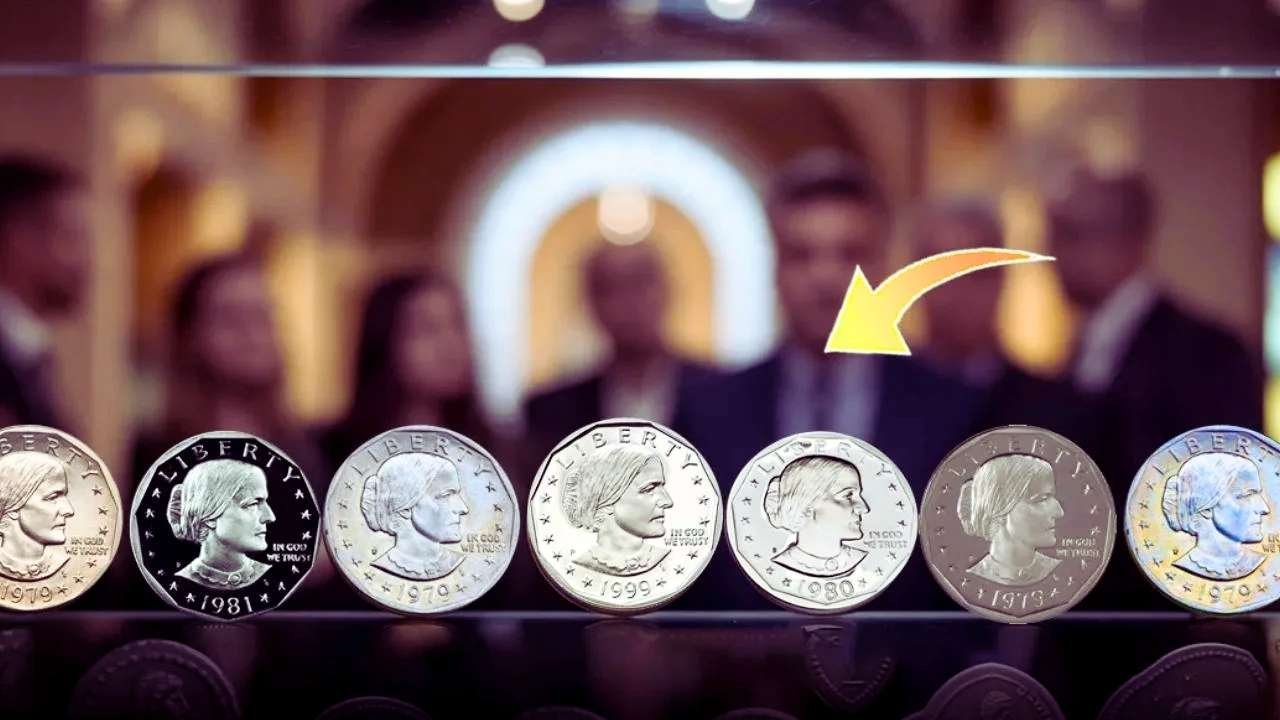Have you ever dug through your loose change and wondered if there’s something special mixed in? Those small Susan B. Anthony dollars from back in the late 70s and early 80s might look like quarters at first glance, but some of them could be worth a whole lot more. Minted to honor the famous women’s rights leader, these coins didn’t catch on much with folks because they were too similar in size to quarters. Production stopped after just a few years, except for a comeback in 1999. Today, most are just worth face value, but rare versions with minting mistakes or special features can sell for thousands. Collectors hunt for these hidden gems, and you might have one without knowing it.
A Quick Look Back at the Coin’s Story
The U.S. Mint rolled out the Susan B. Anthony dollar in 1979 as the first coin to show a real woman who wasn’t a symbol like Lady Liberty. It replaced the big Eisenhower dollar to make things easier for vending machines and folks on the go. But people got it mixed up with quarters right away, so it never really took off. They made them in Philadelphia, Denver, and San Francisco until 1981, then brought it back one last time in 1999 to bridge a gap before the Sacagawea dollar. Over 800 million were made, so they’re common, but errors during minting created some super rare ones that drive up the price at auctions.
What Makes These Dollars So Valuable?
The big money comes from coins in top shape or with weird minting goofs, like being struck on the wrong metal or with design tweaks. Things like a wider rim or a clearer mint mark can turn a regular dollar into a collector’s dream. Proof versions meant for collectors are extra special if they’re perfect. Prices depend on condition, but some have sold for over $20,000. Experts grade them on a scale, and the best ones fetch the highest bucks. If you’ve got old change from grandma’s jar or a forgotten drawer, it’s worth a peek.
The Top 7 Rare Finds
Here’s a rundown of seven standout Susan B. Anthony dollars that could turn up in your change. Most are from errors where the mint used the wrong blank or die, making them one-of-a-kind. Check out this simple table for quick details:
| Coin Description | Why It’s Rare | Top Sale Price |
|---|---|---|
| 1981-S in gem condition | Pristine details, no wear from use | $21,600 |
| 1999-P on Sacagawea planchet | Gold tone from wrong blank, mint error | $16,100 |
| 1979-P struck over a quarter | Overlapping designs from error | $13,200 |
| No-date struck over 1978 dime | Notched edge, mixed profiles | $11,400 |
| 1979-S on copper penny planchet | Wrong metal, crisp but unusual | $8,700 |
| 1980-S on nickel planchet | Smaller size, notched from error | $6,900 |
| 1979-P with wide rim | Date closer to edge, design variation | $6,500 |
These values come from recent sales, but remember, condition matters a ton. A beat-up version won’t bring as much.
How to Spot One in Your Change
Spotting these rarities isn’t too hard if you know what to look for. Grab a magnifying glass and check the date, mint mark (that’s the little letter like P, D, or S), and edges. Look for odd colors, sizes, or double images that scream minting mistake. The wide rim on the 1979-P has the date hugging the edge closer than usual. If something seems off, take it to a coin shop or appraiser. Folks find these in bank rolls or old piggy banks all the time. Just don’t clean them, as that can drop the value.
Why Now Is a Good Time to Check
With coin collecting on the rise, prices for these Susan B. Anthony rarities keep climbing. Stories pop up about everyday people cashing in big on attic finds. If you’ve got a stash of old dollars, sort through them soon. You never know, that funny-looking coin might pay for a vacation or more. Stay curious about your change it could lead to a nice surprise.
